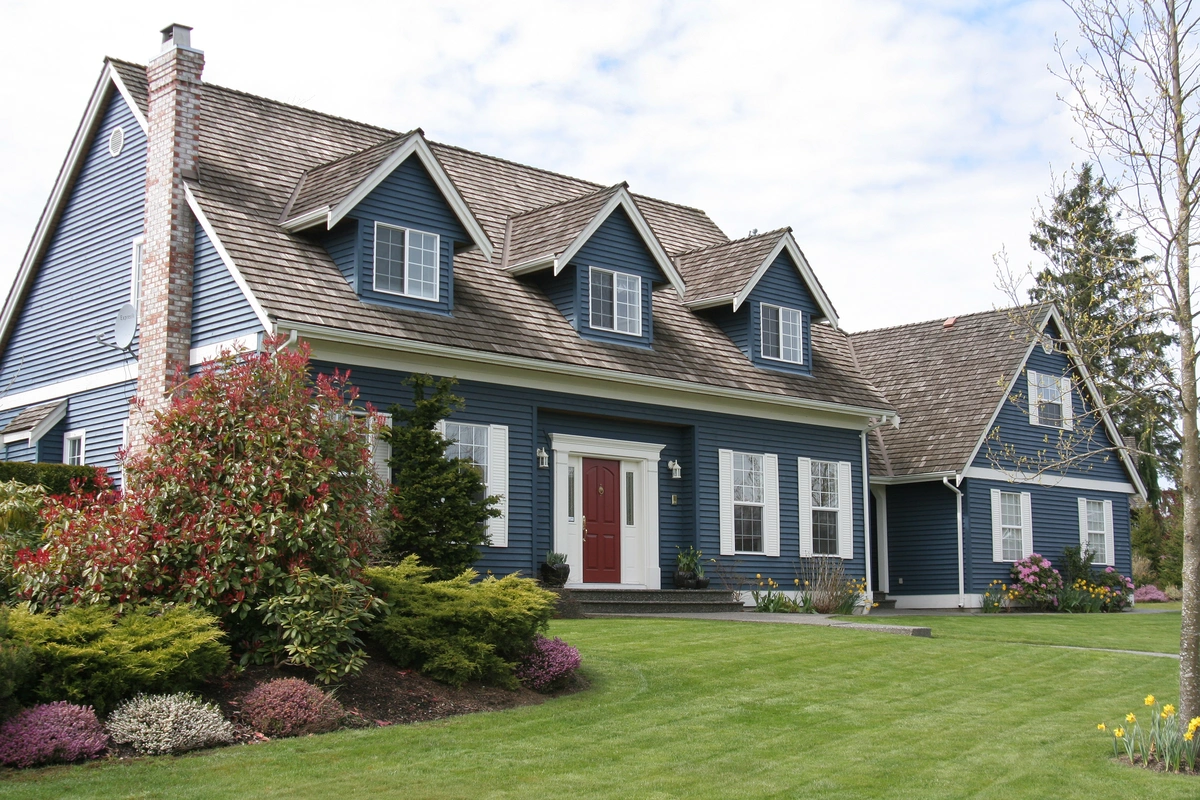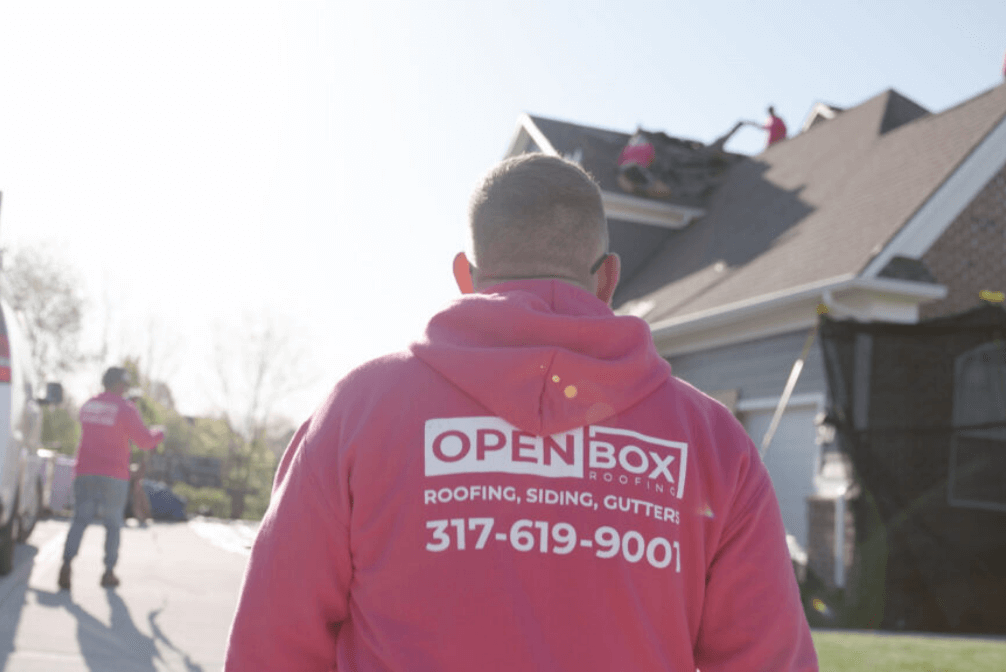Your home’s roof is essential to ensure comfort, safety, and protection from the elements. But, at some point, every homeowner will inevitably wonder, “How long does a roof even last?” How long will my roof last? Especially if you have had minor roofing issues arise such as roof leaks, missing shingles, moss growth, etc…
So.
How long does a roof last? On average?
For a typical residential roof—depending on the material, type of roof, climate conditions, and proper maintenance, the answer can vary significantly from an asphalt roof with shingles to slate roofing.
It’s always great to keep up with general roof maintenance tasks to ensure a longer-lasting roof, but if you’re unsure as to the age of your roof or have been dealing with consistent issues, it’s important to fully inspect your roof.
Always consult with a professional roofing contractor if you think you need a new roof.
Until then, get informed by reading further.
Typical Roof Lifespans for Different Materials
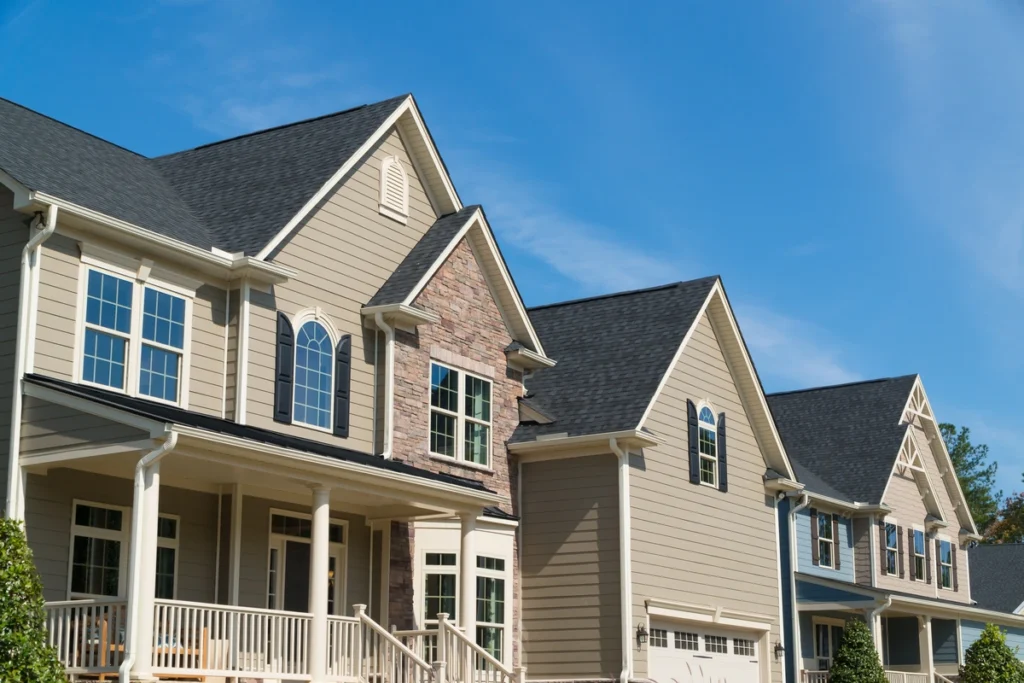
Asphalt shingle roofs can last between 15 to 30 years; wood shake roofs for up to 30 years; fiber cement shingles for around 25 years; metal roofs can last from 40-70 years; slate tiles and clay tile roofs have a lifespan of over a century, while concrete tile roofing has an average lifespan of 50+ years.
Asphalt Shingle Roofs: 15-30 Years
Asphalt shingles are the most popular choice for homeowners due to their affordability, versatility, and relatively long lifespan. Typically, these roofs can last between 15 and 30 years, depending on various factors such as installation quality, climate conditions, and regular maintenance.
Several asphalt shingles are available on the market, including 3-tab shingles or architectural (laminated) shingles.
While both options provide excellent protection against extreme weather conditions like heavy rain or snowstorms, architectural varieties tend to be more durable and impact-resistant, which may contribute towards a longer-lasting roof.
Since many manufacturers offer warranties ranging from 15 to 30 years—always keep track of your specific warranty information, as this will give you an idea of when it might be time for a replacement if any issues arise within that period.
Wood Shake: 30 Years
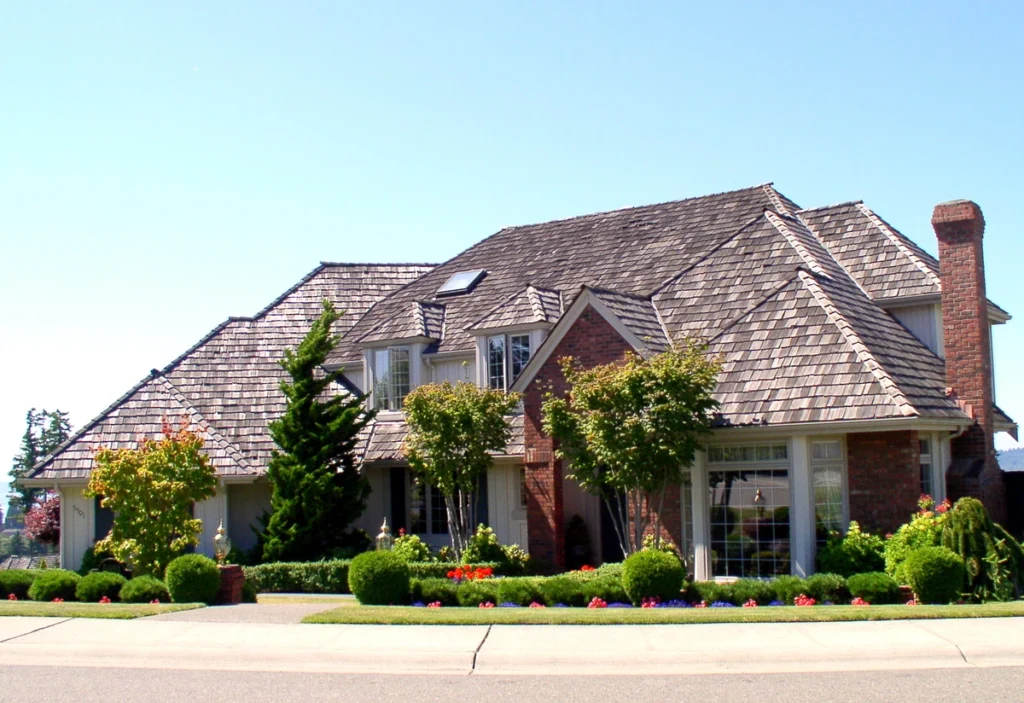
Wood shake roofs are a classic and attractive option for homeowners who desire a more natural home appearance. With an average lifespan of 30 years, they provide long-lasting protection from the elements while adding charm and character to existing roofs on any property.
Cedar is the most popular choice for all wood roof shakes due to its inherent weather resistance, insulating properties, and durability. When properly installed and maintained, cedar shake roofs can last up to 50 years or more, providing excellent value throughout their lifetime.
However, it’s essential to remember that these natural materials require regular upkeep – including cleaning debris and applying preservative treatments – to ensure they continue protecting your home effectively.
Fiber Cement Shingles: 25 Years
Fiber cement shingles offer an appealing combination of durability, energy efficiency, and aesthetics, making them an increasingly popular choice for homeowners seeking a durable roofing option.
These versatile roof materials and shingles are constructed from a blend of cellulose fibers, sand, and cement, providing impressive resilience against the elements.
One notable advantage of fiber cement shingles is their resistance to rotting and warping – common issues faced by wood shingles and shake roofs – which helps to extend their overall life expectancy.
Additionally, they can be manufactured in various styles mimicking wood or slate, offering homeowners a range of design options without compromising longevity.
Metal Roofing: 40-70 Years
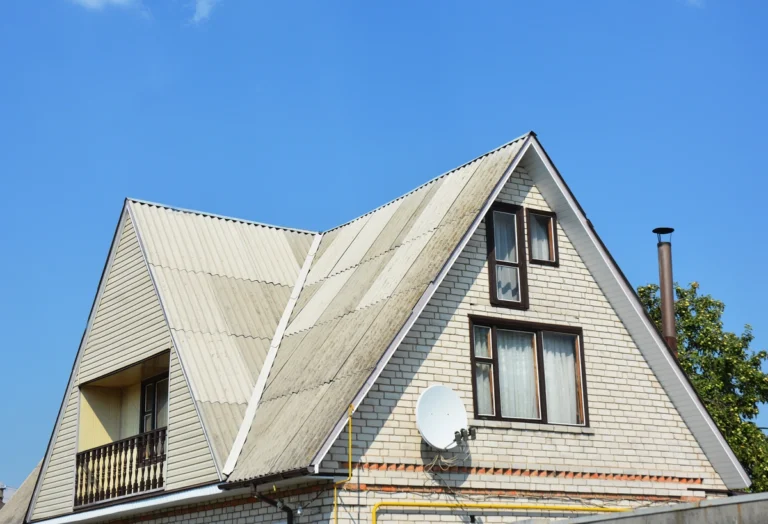
Metal roofing materials are known for their durability and longevity, with the average lifespan ranging from 40 to 70 years. However, this can vary depending on the type of metal used, such as steel or copper, and how well it is installed and maintained.
Compared to traditional asphalt wood shingle roof and roofs that typically last around 15-30 years, a properly installed metal and roofing system can last over twice as long. For example, while steel roofing has an average lifespan of about 40 years, zinc-coated metal roofs will last between 60 and 100 years.
Copper metal roofs are even more durable than regular metal roofs, with an expected lifespan of around 80 to 100 years making them the most long-lasting type of metal roofing available.
Slate Roofing: 100+ Years
Slate shingled roofing materials are highly durable materials and long-lasting options, with some slate shingles lasting for over 100 years. However, the lifespan of a slate shingle roof greatly depends on factors such as the quality of the materials used, proper installation techniques, and regular maintenance.
Origin also plays an essential role in determining the longevity of a slate roof or tile roof; for instance, Pennsylvania slate roofs usually last between 40 to 50 years compared to Welsh or Vermont slates, which can last up to 200 years.
Clay Tile Roofing: 100+ Years
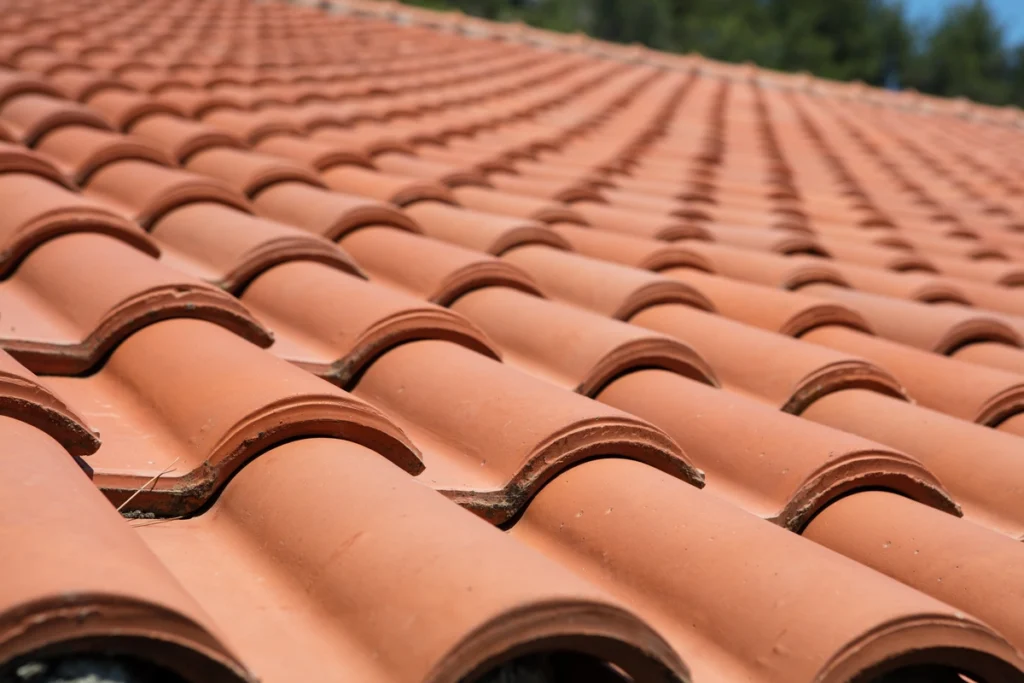
Clay tile roofing is one of the most durable roofing options available. With a lifespan of 100 years or more, it’s evident that clay tile roofing alone can last more than twice as long as asphalt shingles.
Clay tile roofs are also fireproof, which makes them an ideal option for use in dry or arid regions where wildfires occur frequently. In addition, clay tiles are resistant to strong winds and inclement weather.
Concrete Tile Roofing: 50+ Years
Concrete tile roofing is a popular choice for its durability and long lifespan. On average, concrete tile roofs can last over 50 years or more with proper maintenance.
While concrete tiles have a shorter lifespan than clay roof tiles (which can last up to 100 years), they are still considered one of the most cost-effective options today.
Maintaining them regularly is crucial by inspecting them for damage, keeping gutters clean, and removing debris from the entire rooftop surface.
Factors That Affect Roof Lifespan
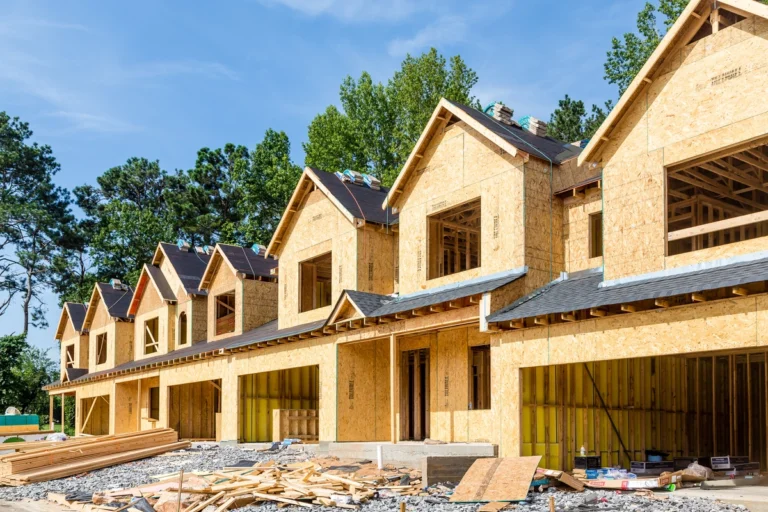
Several factors affect the lifespan of a roof. One major factor is weather conditions in the area. Roofs in areas with harsh weather conditions tend to wear out faster than those in milder climates.
The quality of roof repairs and installation also plays a crucial role in determining how long your roof lasts. A full roof replacement or poorly installed roof can develop problems early on in roof life, leading to premature deterioration.
Lastly, proper maintenance of roof leaks is critical for extending the lifespan of any roof replaced with any type of roofing material.
By addressing these three key factors affecting your roof’s lifespan – weather conditions, installation quality, and regular maintenance – you’ll be more likely to get maximum value from your investment.
How Long Does a Roof Last?
We know, “It depends,” is not exactly what you were hoping for when asking “How long does a roof last?” But that’s why the best way to assess your roofing needs is to do some research and get in touch with a professional roofing company that has experience with all sorts of roofing materials, roof types, and offers quality roofing warranties.
On average, residential roofs can last between 15 to 30 years. However, you can significantly extend your roof’s life with proper care and maintenance and—most importantly, working with professionals you can trust.
For more information, professional advice, or a free roof inspection, contact OpenBox Roofing today.
